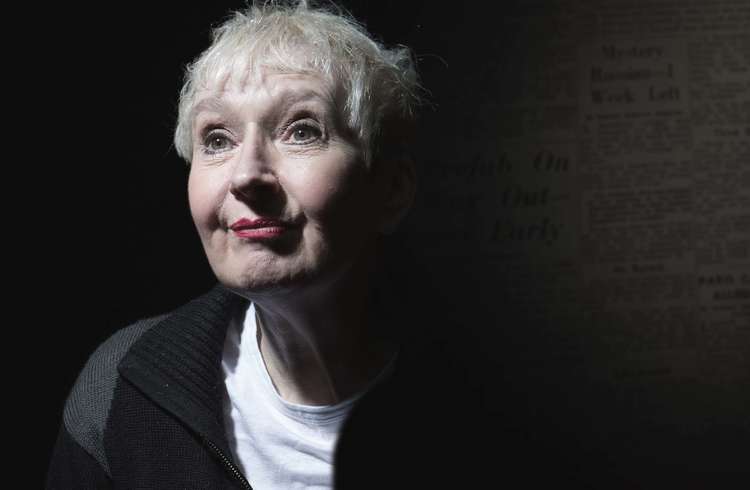The set already hints at the characteristics of the eponymous protagonist – played by well-known TV and stage actress Su Pollard – before Harpy has even begun. Looking like a well-stocked jumble sale, bric-a-brac and junk are littered around the stage: clothes, plastic bags, paintings, boxes and a symbolic filthy fish tank. Pollard plays Birdie, an eccentric, scatter-brained but sensitive middle-aged woman living in the house where she was sent as a young adult to live with her now-deceased aunt.
The monologue unfolds to detail Birdie’s day-to-day life as the subject of local gossip. They think she is a mad hoarder who lives alone and who may or may not be a murderer. Woven throughout this narrative are her reflections and memories that give us subtle insights into her fragile, yet defensive psyche and at times upsetting moments from her past. The script is engaging, believable and funny with some wonderful comic lines that earn perfect reactions from the audience. The bursts of 80s music that Birdie sings along to – Bananarama and Kate Bush – keep the atmosphere upbeat when needed as well as suggesting that her journey in life came to a halt some time ago.
The main attraction here, though, is Pollard herself. Her voice is instantly recognisable and therefore instantly creates a connection between us and Birdie. The star delivers every line with punch and purpose and makes it easy to become immersed in the character’s life. Her portrayal is sympathetic and warm and therefore helps the play in its mission to give us an insight into a social outcast and the issues surrounding her. Birdie is a hoarder, a local pariah, a lone occupant in her dishevelled home and a sufferer of mental health issues. Writer Philip Meeks is opening a closed door to let us see how someone like this might live, as well as to provoke us to consider how we – as individuals and a society – help (or ignore) people in such situations. Is anyone really looking after Birdie? Has her culture led her to this state of life only to abandon and ridicule her? What can we now do about it?
Harpy is an ideal vehicle for Pollard, showcasing her liveliness and ability to engage an audience. It’s also an emotive play, though, and aims – successfully – to shed a light on those in society who are often forgotten.
